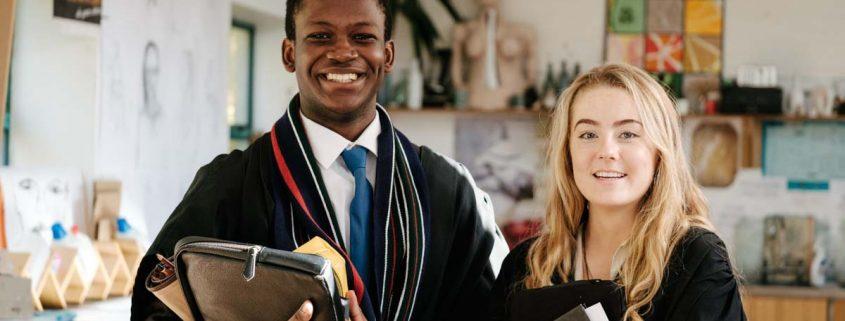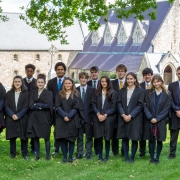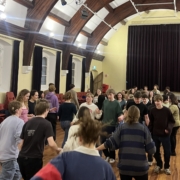Warden’s Thoughts … on Pupil Leadership
I have spoken a lot about service over the last three years and about how to develop an ethos of service amongst our pupils. I am not going to repeat myself now. What I have perhaps spoken about less is leadership, which is actually the other side of the same coin. It is certainly not contradictory or paradoxical to talk about service and leadership in the same breath, because the best leaders are also servants, prepared to sacrifice on behalf of their followers and determined to get the best out of other people. A good leader should not be afraid to empower others, to give opportunities to them and enjoy seeing them grow in confidence and stature. A poor leader will happily see his or her followers stay dependant on the boss and wait for instructions. Ultimately that style of leadership saps initiative and leads to resentment. Of course, giving people responsibility is risky, because they might fail, but there is nothing wrong with failure, as long as you pick yourself up, dust yourself down and learn from it.
When it comes to developing leaders I am thinking right now of the pupils, rather than the staff. How do we help our pupils to become leaders, to take initiative, to be prepared to stand up and not be afraid to fall down? My concern is that when it comes to choosing prefects, for example, those who will lead the pupil body in their final year, we go on hunches and pick those who we think will be good role models, but we have given them precious little in the way of actual training, or encouraged them to stretch themselves prior to their final year. Surely leadership training should not be something that begins in the 6th form, or at the end of the 5th form, but something, a bit like service, that we try and inculcate into our pupils from the 1st form onwards.
What do I actually mean by leadership, particularly in the school context? Well, let’s examine that by looking at what an aspiring young leader at school might look like, divided into being and doing, who they are first and what they do second:
So who are they?
- They are prepared to stand up for others and to speak out when they see something that they think is wrong;
- They are not easily influenced by the crowd or their peer group;
- They don’t mind being a little bit different, because they are thinking about the bigger picture of who they want to become rather than being popular right now;
- They lead when others are not looking, not just to get attention.
And what might they do?
- They might volunteer to run or help run activities;
- They might act as mentors for younger or new pupils;
- They might put their hand up for jobs that are not very glamorous;
- They will look out for those around them who are struggling and not be afraid to bring it to the attention of the appropriate people;
- They might have a quiet word with someone who they think is behaving poorly or making someone’s life unpleasant;
- They will take on tasks or responsibilities that stretch them, rather than always doing things with which they are comfortable.
And what should the teaching staff do?
- Allow pupils, right from the earliest years, to take responsibility and then support them…and praise them and lift them up when they fall;
- Encourage them to take initiative, rather than wait for a member of staff to suggest something.
These are just some initial thoughts and I am sure that it would be easy to flesh them out a lot more. Although prefects in the 6th form are necessary, actually all 6th formers should be leaders and, in fact, all pupils should be encouraged to see themselves as leaders, whatever year they are in. I want to see how we can do that better than we have done, so be prepared for me to be speaking a lot about leadership in the months to come.












